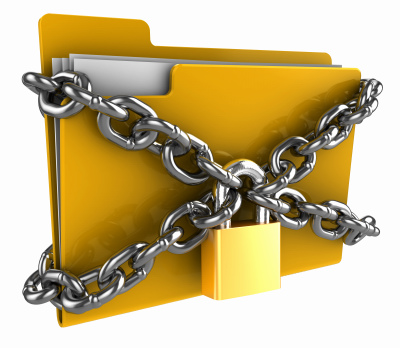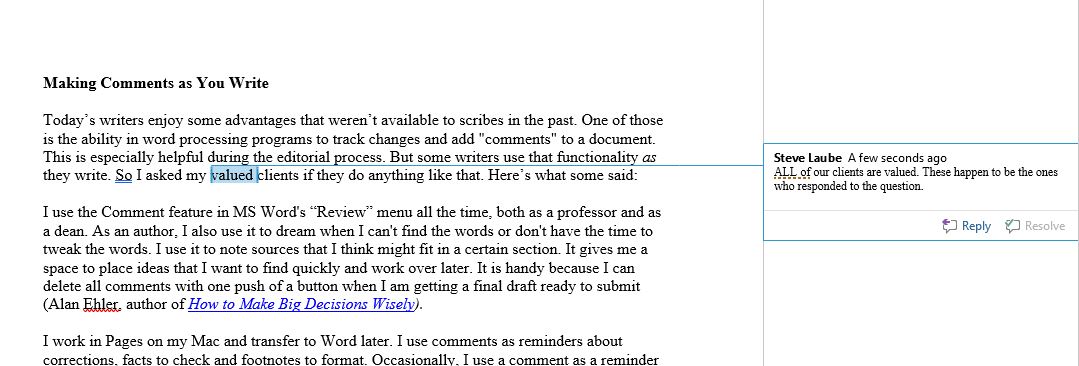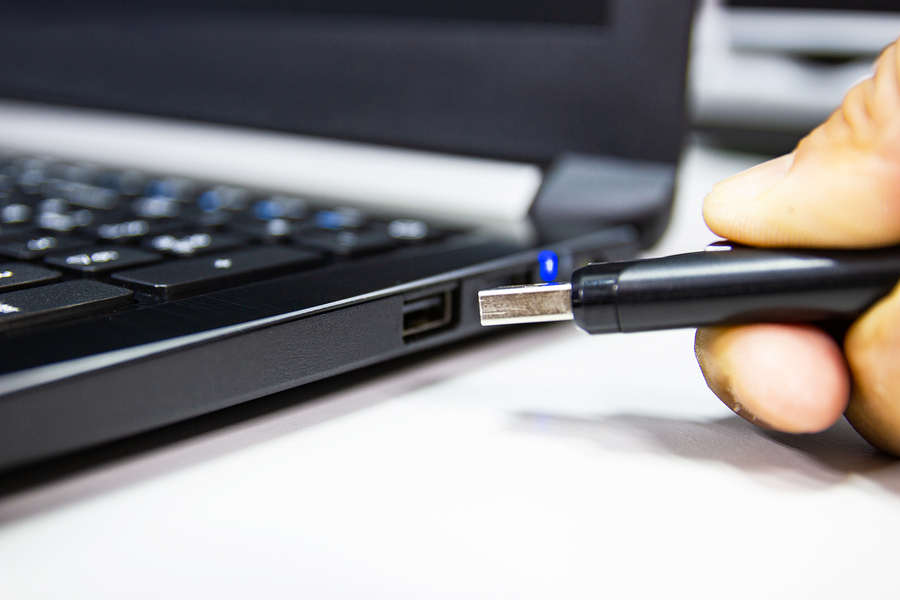The question is not if your hard drive will fail; it is a question of when. Every year I have a client whose laptop or desktop hard drive has crashed.
Let me tell you a true story:
A few years ago an author was on a serious deadline. The author had already asked the publisher for two deadline extensions but had only written one half of the book. The editor said, “We’ll give you a third, two week extension, but this is the last one. It is now a ‘drop dead’ deadline.”
The author was unable, due to life circumstances, to effectively work on it for most of those extra days. So, in order to hit the Monday deadline, they borrowed a laptop from work (with permission) and headed out Friday morning to a hotel for the weekend. The author spent three straight days pounding the keys, finishing the second half of their book.
In the wee hours on Sunday night, well after midnight, in pure exhaustion, the author hit Send and emailed the manuscript to the publisher. Closed the laptop and slept for a couple hours.
The author staggered to work on Monday morning and returned the laptop after copying the file to a flash drive.
A few hours later the editor at the publisher wrote, “Thanks for sending the first half of your book to me this morning. Where is the rest?”
Dare I tell you the rest of the story?
The author had somehow sent the original half-finished book, not the completed one. And then saved the same incorrect file to a flash drive. The other half of the book was a different file.
But you might say, “So what? It’s still on that company laptop!” You would be wrong. You see, it was company policy with borrowed laptops to wipe clean any previous usage and reboot the laptop as secure and clean. The IT department did that work shortly after its return.
All the work was gone. Forever deleted.
The publisher declared the author in breach of contract for missing yet another deadline. And the book was not published.
So my question to you is, “Do you have a good backup plan?”
The Myth of Hitting the Save Button Regularly
Many people think that just hitting the save button is enough. Sorry. That only saves the file to your local computer. And if that computer fails, you are toast. While hitting the save button helps with immediate things, it isn’t a long-term solution. What if someone steals your laptop while you turn your back to refresh your drink at the coffee shop? (I know of an author who had this happen to them in an airport.)
Save Your Files to the Cloud
This is a go-to popular option and has many benefits. The cloud is a “computer in the sky,” which is easily accessed at any time.
Mac users have iCloud (first 5 GB storage free) as part of their operating system. However, many will use this space to back up their phone and photos; so you might need to buy extra space. Windows users can also access iCloud backups.
Microsoft users have OneDrive (first 5 GB storage free) as part of their operating system, if using Windows 10 or later. It is already integrated into the File Explorer and easy to use.
If you like Google and use their G-Suite ($6 a month as of this writing) for email, calendar, etc., you get 15 GB of storage as part of the subscription.
Another option, which I use, is Dropbox (first 2 GB storage free). It acts like a briefcase that I can access from any computer anywhere. Every key folder in our business is in Dropbox. Whenever a file is saved by clicking the save button, it is updated in Dropbox. What I also appreciate is that it is also saved on my computer hard drive (if you set it up that way). This gives me peace of mind if Dropbox is inaccessible for some reason.
Another advantage is that Dropbox allows me to easily share a folder with others (like Bob and Tamela), so we all have access to internal company files we use.
The only problem I’ve run into is the need to pick ONE cloud service and stick with it. If you have files in multiple clouds, you’ll stop being able to remember which file is where.
But that’s not all.
Additional Cloud Backup
I highly recommend you use a secondary (tertiary?) fail-safe backup plan. This is where you back up all the data on your computer off-site–all the time, automatically, while you are connected to the Internet. The one I use at the office and at home is Carbonite. There is a cost for the service of $72 a year for unlimited storage (as of this writing).
With Carbonite I have backed up all music, photos, and videos, in addition to all the office documents and data. (Everything digital.) The advantage with this method is the files are backed up every time I’m not working on the computer, automatically. I don’t have to think about backing up; it is done for me. When I bought a new computer, I was able to reload all the data from the backup. Or, as once happened to me, a particular file got corrupted for some reason while I was editing it. I went to Carbonite and downloaded the saved version of that file and within minutes was up and running again.
Carbonite is a fail-safe of everything. I know my family photos are safe, as well as other important things. (Just make sure you use a really good password! You don’t want someone stealing everything because you used an easily guessed password, like “password” or “letmein” or “#stevelaubeisagoof.”)
Save to an External or Portable Backup Device or Email Service
Keeping your files on an external drive or a USB thumb drive is okay. But what if you lose the thumb drive (they are so small!)? Or what if you forget to take the external drive with you and your computer is stolen from your office, along with the external drive?
Emailing a file to yourself or to a separate email account is another option. This method is hard to manage if you have dozens of files to mess with, but it is a solution I’ve seen used. For example, create a Gmail, Outlook, or Yahoo mail account only for backup purposes. But make sure it is separate from your regular email service. (What if the main one is unavailable right when you need it?)
Use Your Agent, Family Member, or a Friend
Believe it or not, I have a few authors who send me their manuscripts as a backup (via email). At least a dozen times I’ve been able to find an old proposal or manuscript in my archives because the author’s computer failed. It does mean trusting a third party with your material. Thus only do this with selected material and only with those you trust and after asking permission.
Your Turn
There are many other options available (like cBackupper.com, Box.com, and Egnyte.com). What do you use as your backup plan? (Please don’t tell us you still use floppy discs!)










